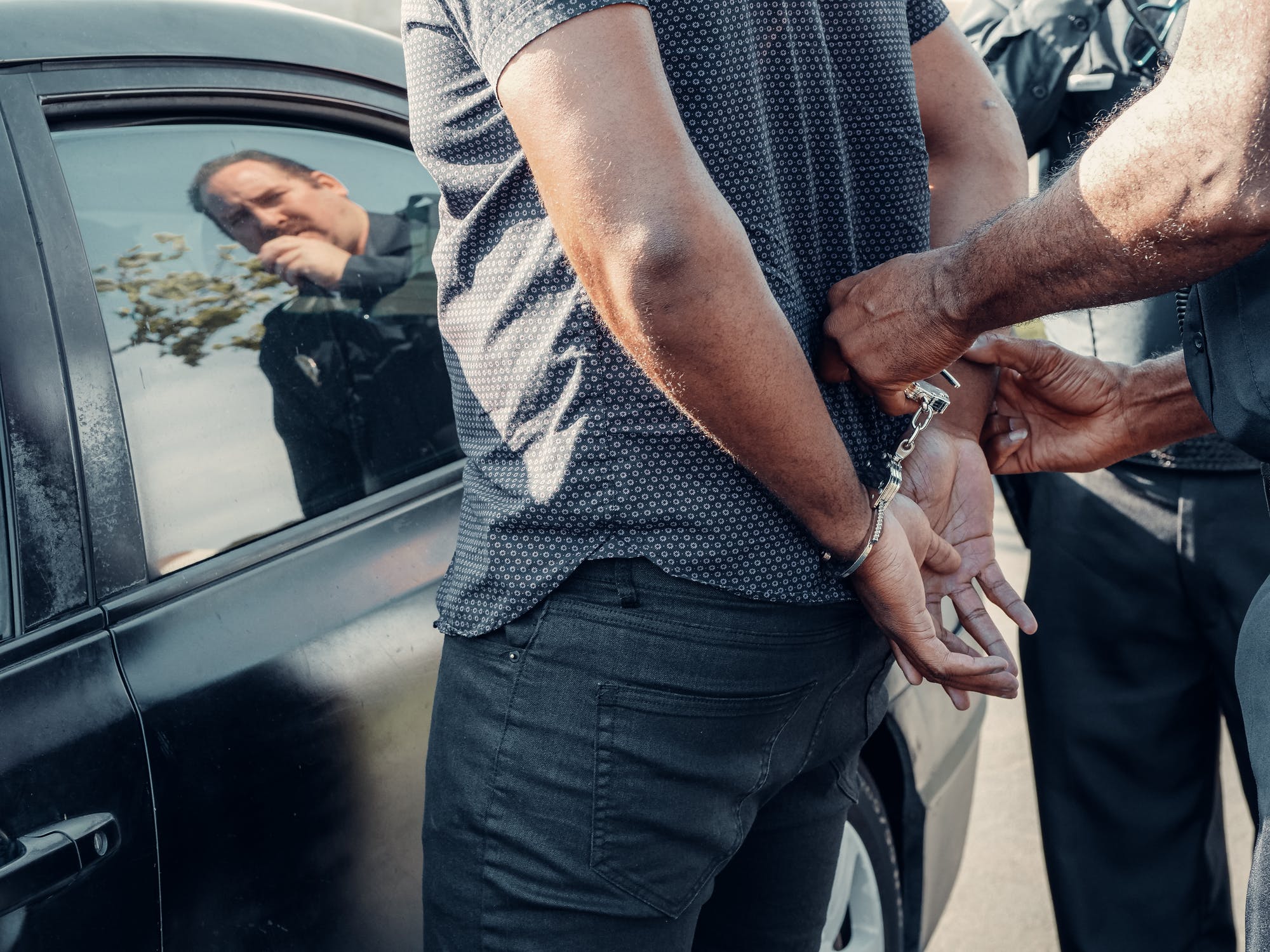Violent crimes and their legal penalties | 5 minute read
Violent offences can be difficult, brutal and are actually some of the most common offences in the UK. The category of “violent crimes” covers a vast span of violations, from more common, daily occurrences to major, bloody crimes. Whatsmore, it is one of the more complex areas of law, as each violent crime has its own legislation and punitive measures.
This article will examine some of the most common violent offences in the UK, along with their legal penalties, and what you should do if you are accused.

What is a violent crime?
Violent crimes are any form of crime or criminal activity that pose a threat to someone’s safety and can often involve a form of weapon. Furthermore, they can occur anywhere, between anyone, and can involve someone you may or may not know. Violent attacks can be driven by money, by personal reasons or can sometimes be completely random.
Violent crimes are some of the most unpleasant cases that a lawyer may handle. In fact, the category of violent crimes is an umbrella term for a multitude of different offences, with comparatively minor crimes such as robbery and common assault occurring on a daily basis.
What is Considered A Violent Crime?
There are countless different forms of violent crime in the UK. However, the most common include:
- Sexual offences/ sexual assault/ rape
- Offences against children
- Offences against the Person, such as GBH, ABH, and common assault
- Robbery/ Burglary/ Theft /Handling Stolen Goods
In the year ending March 2020, there were 1.2 million incidents of violent crimes in the UK. This equated to:
- 695 recorded homicides (murders)
- Almost half a million reports of violent stalking/ harassment
- 540,000 reports of injuries during a violent crime
case study
In the year ending March 2020, the Gray’s lorry incident accounted for a 7% increase in violent crimes on the previous year.
In October 2019, 8 criminals were charged with the deaths of 39 Vietnamese migrants, who had suffocated on their journey to England. The 4 leaders of the operation were charged with manslaughter and the incident was the largest mass-manslaughter case in the UK in over 20 years.
what legal penalties are there for violent crimes?
1) Physical Attacks

Common assault
Actual Bodily Harm (ABH)
ABH can cover psychiatric harm, as well as physical injuries which are not always permanent. The maximum sentence for ABH is 5 years imprisonment, and cases must be at the Magistrate’s Court.
Grievous Bodily Harm (GBH)
2) sexual offences and offences involving children

Sexual Assault
Rape
The more extreme the offence, the higher the sentencing time. In the UK, the maximum sentence for rape is life imprisonment, while the starting point is 5 years.
Sexual/ Physical violence against children
Rape of a child under the age of 13 has a maximum life penalty, while sexual assault carries a maximum of 14 years in custody.
3) Taking another person’s life

Murder
Murder carries a mandatory life sentence if the accused is convicted, meaning the Judge won’t have the authority to offer a lower sentence.
Attempted Murder
Manslaughter
Sentencing for manslaughter varies depending on the severity of the offence and could carry life imprisonment. However, a typical sentence is between 2-10 years.
4) Other violent crimes

Domestic Violence
Domestic abuse, if successfully convicted, carries a minimum sentence of 3 years probation and a 52-week batter’s programme.
Acid Attacks
Robbery
Robbery can carry a maximum penalty of life imprisonment, depending on the severity of the crime and their violence towards the victim.
How Will the Court Decide on the Sentencing for A Violent Crime?
Despite giving a guideline for the sentences that come with violent crimes, it’s ultimately the courts decision. They will consider factors such as:
- Remorse
- Co-operation with the prosecution
- The severity of your crime
- Any previous convictions
what happens if I’m arrested for a VIOLENT crime?
UK law is split into two systems: civil and criminal. A violent crime, no matter what form it takes, will always be a criminal offence. If you are the victim of a violent crime, you will need to report it to the police as your first point of action, where they will launch an investigation. However, if someone accuses you of a violent crime, you will need to prepare for what will come next.
1. If someone accuses you of a violent crimes, the police will typically begin by arresting you and taking you to a police cell where you will be held in custody.
2. The police will then conduct a recorded investigation and will ask you questions about the crime and will explain your rights.
3. After your interview, you will either be released or charged with the crime in question. If the authorities charge you with a violent crime, you will receive a charge sheet, which will outline the details of your charge.. The police may allow you to go home until your court hearing, which mean you’ll be in bail.
4. Alternatively, they may keep you in police custody until your court hearing. Serious violent crimes like murder and rape are known as indictable offences and are passed straight on to the Crown Court for trial or sentencing.
what if i’m falsely accused of a violent crime?
It’s likely that proceedings for a false accusation will follow the standard arrest procedure. Normally, if you’ve been accused of a crime you did not commit, the police will interview you and will have enough evidence to let you go.
However, if this isn’t the case, you’ll need to get a defence lawyer involved immediately, to help you gather evidence and build your argument. It’s important that you don’t:
- Destroy any possible evidence
- Talk to the victim or witnesses
- Talk to the police without your lawyer present
What does a criminal defence lawyer do?
A criminal defence lawyer is responsible for representing you throughout your case and making a counterargument against the prosecution. They will work with the police during your investigation and will gather testimonials and evidence from witnesses.
Serious violent crimes are always tried before a jury at Crown Court. During court proceedings, your defence lawyer will speak on your behalf and will essentially explain to the jury why you should not be prosecuted for the crime.
WHEN DO I Need a Criminal Defence Lawyer?
It’s important that you understand the severity of criminal matters and the punitive consequences attached to these issues. For criminal issues with potential consequences, we would always advise you to seek legal help. Whatsmore, taking the right actions early can ensure you minimise any stress on yourself and stop any further action.
If you are arrested for a violent crime, or if you think that you will be accused/arrested for a violent crime, you must involve a criminal defence lawyer as soon as possible to start to build a defence. As soon as you are accused of a crime, you must contact a criminal defence lawyer even before you speak to the police. At the beginning of the defence case, a defence lawyer will use the information provided and detailed instructions and interviews to build a defence case.



0 Comments